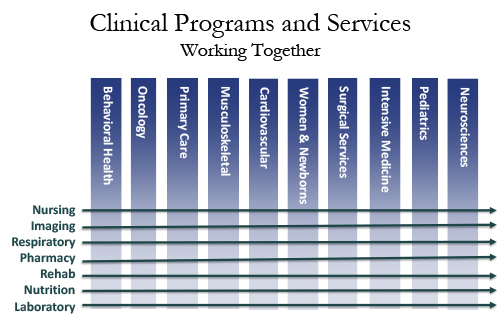 Costs & Cost Controls
Costs & Cost Controls
ASA survey: Who bears responsibility for reducing healthcare costs?
Editor's Note A survey of members of the American Society of Anesthesiologists on the level of responsibility they perceive stakeholders to have in reducing the cost of healthcare and perioperative care delivery found: physicians bear “major responsibility” (38%) physicians bear “some responsibility” (58%) physicians bear “no responsibility” (4%) hospitals bear…
Efficient health information exchange could significantly lower costs
Editor's Note Including a health information exchange query into emergency department patient care could significantly reduce the number of tests ordered and reduce costs, finds this study. Efficient health information exchange was associated with a 52% reduction in lab tests and a 36% reduction in radiology exams per patient ordered…
Cost data comparisons help sway surgeons to standardize supplies

As payment models move from fee-for-service to value-based care, hospitals and healthcare systems are trying to reduce spending by 20% to 30% to maintain their budgets. Supply costs are usually the second largest expense after labor, and industry analysts predict they will take the top slot by 2020. In 2013,…
Master five key concepts to sharpen financial management skills
Most OR leaders are talented nurses who have risen through the ranks. They have strong clinical expertise but usually little background in financial management. And only about a third of OR directors have a business manager on staff. Recently, senior leaders at Surgical Directions discussed the question, “What financial concepts…
Streamline selection and stocking to make supplies available and affordable
There are two ways to approach supply cost reduction. One is to minimize direct supply costs by optimizing product selection, controlling utilization, reducing waste, and negotiating more favorable prices. The other is to attack indirect supply costs driven by high inventories—the excess holding and labor costs associated with excessive supply…
Building the business case for a hybrid OR
Hybrid ORs are proliferating in response to market, surgeon, and even patient demands, but building the business case for this technology can be challenging. “It’s a very expensive proposition,” says Lynne Ingle, MHA, BS, RN, CNOR, project manager for Gene Burton & Associates, a healthcare technology consulting company in Franklin,…
Reducing emergency surgical procedures could save $1 billion
New research shows that even a modest 10% reduction in the proportion of emergency surgical procedures for three common conditions could save nearly $1 billion over 10 years. The study also showed significantly lower rates of mortality and better outcomes among patients who had these procedures on an elective basis.…
Surgeon sees standardization and data as keys to higher value healthcare
Over the past decade, the number of quality measurement programs has grown exponentially as hospitals respond to public and government demands for greater accountability and improved patient care. During this time, quality programs have been focused largely on how to do quality, how to measure it, how to improve it,…
Orthopedic implant overhaul nets cost savings and surgeon satisfaction
One way to shave the OR operating budget is to trim the supply spend, and for orthopedic service lines in particular, reining in costs related to implants can make a big impact. Some orthopedic service providers have achieved dramatic savings by adopting a “rep-less” model for certain procedures. At Loma…
Editorial
Individual health insurance coverage mandated by the Affordable Care Act (ACA) went into effect a year ago. Whether that has helped or hindered patients is unclear. Similarly, the jury is still out on the ACA’s long-term effects for healthcare providers. A recent report from Moody's Investors Service paints a bleak…

 Free Daily News
Free Daily News